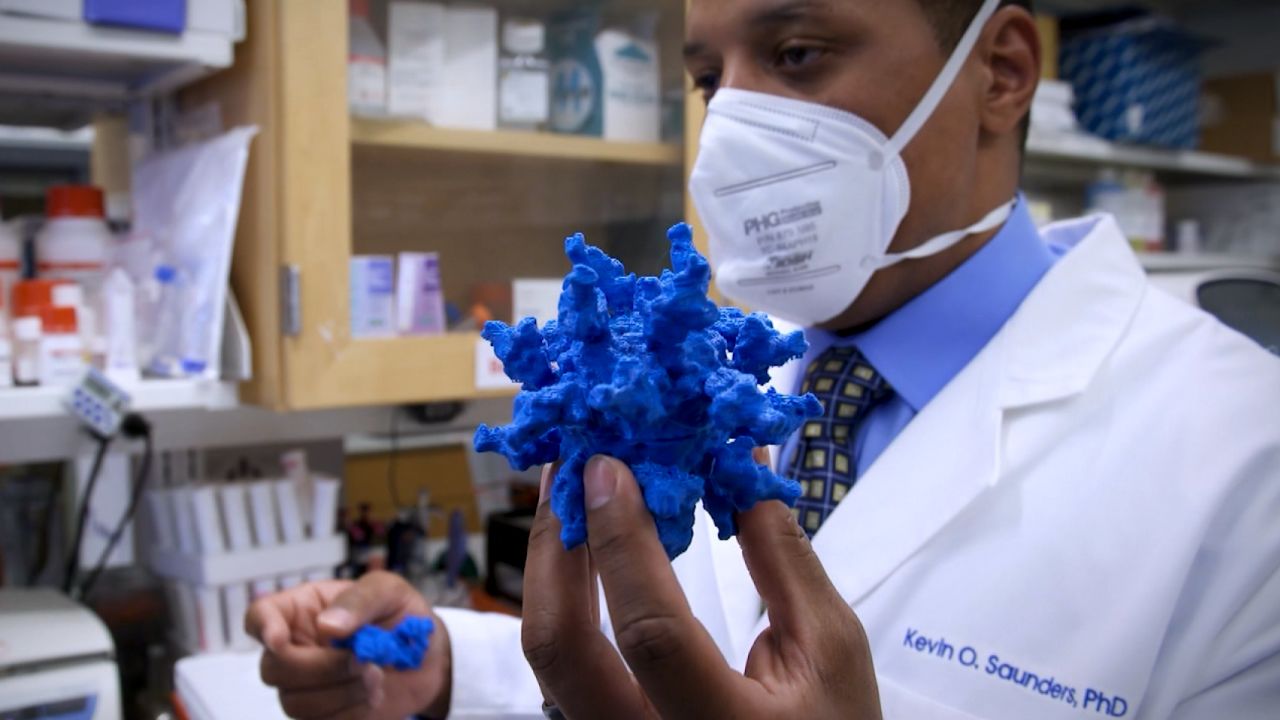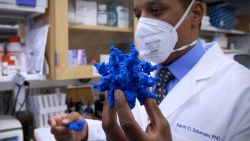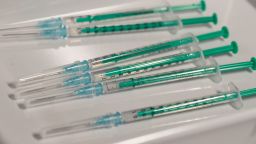Three child-size doses of the Pfizer/BioNTech Covid-19 vaccine appeared to be safe and showed a strong immune response in children ages 6 months to 5 years, the companies said Monday. The vaccine makers said they will finish submitting the trial data to the US Food and Drug Administration this week.
The Phase 2/3 trial included 1,678 children who received a third vaccine dose during the period when the Omicron coronavirus variant dominated. Antibody levels tested one month after the third dose showed that the vaccine produced a similar immune response as two doses in 16- to 25-year-olds, the companies said. The data has not been peer-reviewed or published in a professional journal.
Midtrial results found vaccine efficacy of 80.3% against symptomatic Covid-19 in this young age group. The companies identified 10 symptomatic cases at least seven days after the third dose. However, the efficacy rate won’t be finalized until at least 21 symptomatic cases are found in the vaccine group and compared with the number of symptomatic cases in the placebo group.
The companies said that three child-size doses for this age group were “well-tolerated” and that no new safety signals were identified.
“These topline safety, immunogenicity and efficacy data are encouraging, and we look forward to soon completing our submissions to regulators globally with the hope of making this vaccine available to younger children as quickly as possible, subject to regulatory authorization,” Pfizer Chairman and CEO Albert Bourla said in a statement.
The vaccine doses for these children are smaller than those used in older age groups. People 12 and older receive two doses of a 30-microgram vaccine, and children ages 5 to 12 receive two doses of a 10-microgram vaccine. Both of those age groups are eligible for booster doses.
For children 6 months to 5 years, the Pfizer/BioNTech vaccine is three 3-microgram doses. The initial two doses were given three weeks apart, and the third dose was given at least two months after their second dose.
Dr. William Schaffner, a professor in the Division of Infectious Diseases at Vanderbilt University School of Medicine, said Monday that vaccine scientists have been careful to adjust the dose for younger children to get “a good effect with a minimum of side effects.”
“We’re thinking of this as a three-dose vaccine, and the preliminary data acquired during the Omicron era say it’s actually 80% effective,” Schaffner told CNN’s Brianna Keilar. “We will want to look at that very carefully, but so far, that’s good news.”
Children younger than 5 are the only age group not eligible for vaccination against Covid-19. The vaccine for this age group was delayed when results of a two-dose series of the Pfizer/BioNTech vaccine didn’t provide the expected level of protection. The companies said they would amend the trial to add a third dose.
Get CNN Health's weekly newsletter
Sign up here to get The Results Are In with Dr. Sanjay Gupta every Tuesday from the CNN Health team.
In February, the US Food and Drug Administration asked the companies to submit a request for emergency use authorization based on the two-dose data but then postponed a meeting of the agency’s vaccine advisory board so the third-dose data could be considered.
The FDA said Monday that it will convene its Vaccines and Related Biological Products Advisory Committee on June 14 to discuss Moderna’s Covid-19 vaccine EUA request for people ages 6 years through 17. On June 15, the committee will discuss Moderna and Pfizer’s EUA requests for vaccines for younger children.
Moderna submitted its vaccine data for children 6 months through 5 years of age to the FDA in late April. Moderna’s submission is based on two 25-microgram doses given 28 days apart.





















